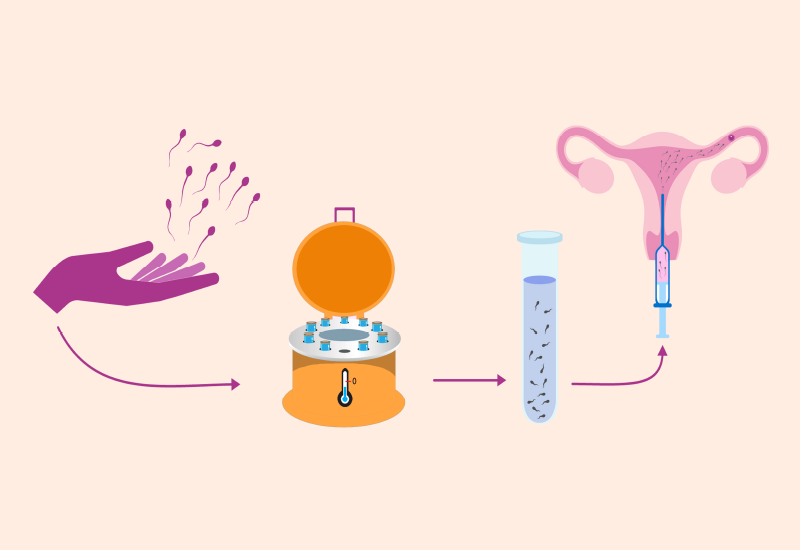Intrauterine insemination (IUI) is a popular fertility treatment that helps couples and individuals facing difficulties in conceiving naturally. It is a minimally invasive procedure designed to increase the chances of pregnancy by placing sperm directly into the uterus. This article provides an in-depth understanding of IUI treatment, its process, benefits, risks, and what to expect.
What is IUI Treatment?
Iui treatment in islamabad is a fertility procedure in which processed and concentrated sperm are placed directly into the uterus, increasing the chances of sperm reaching and fertilizing an egg. The treatment is typically recommended for individuals or couples experiencing infertility due to conditions such as:
- Unexplained infertility
- Low sperm count or motility
- Cervical mucus issues
- Mild endometriosis
- Single women or same-sex couples using donor sperm
How Does IUI Work?
The IUI process involves several key steps:
- Ovulation Monitoring: Before the IUI procedure, the woman’s ovulation cycle is closely monitored. This can be done through ultrasound, blood tests, or ovulation kits to determine the optimal time for insemination.
- Sperm Collection and Preparation: Sperm is either collected from the partner or obtained from a donor. The collected sperm is then “washed” to concentrate the healthiest and most motile sperm. This washing process also removes any chemicals in the semen that could cause discomfort or complications when inserted into the uterus.
- Insemination: Once the sperm is ready, it is inserted into the uterus using a thin catheter. The procedure itself is quick, painless, and typically takes only a few minutes. The goal is to place the sperm close to the egg to improve the chances of fertilization.
- Post-Insemination: After the insemination, the patient can resume normal activities, though some doctors may recommend a brief period of rest. Pregnancy testing is done approximately two weeks after the procedure.
Who is a Good Candidate for IUI?
IUI is an effective treatment for many types of infertility. However, it may not be the right option for everyone. Individuals who are most likely to benefit from IUI include:
- Women with healthy fallopian tubes
- Couples with male infertility issues such as low sperm count or motility
- Couples with cervical mucus problems that hinder sperm from reaching the egg
- Individuals with ovulation issues, such as irregular cycles, who can be induced to ovulate using medication
- Same-sex couples or single women using donor sperm
However, IUI may not be effective in cases of severe male infertility, blocked fallopian tubes, or significant issues with the egg quality. In such cases, other treatments like in vitro fertilization (IVF) may be recommended.
Success Rates of IUI
The success rate of IUI depends on several factors, including the age of the woman, underlying fertility issues, and the use of fertility medications. On average, the success rates per cycle are:
- 10-20% for women under 35 years old
- 10% for women aged 35-40
- 5% or lower for women over 40
It’s important to note that multiple IUI cycles may be necessary before achieving pregnancy, and many patients opt for 3-6 cycles before considering other treatments.
Risks and Side Effects of IUI
While IUI is generally safe and less invasive than other fertility treatments, there are some risks and side effects to be aware of:
- Multiple Pregnancies: The use of fertility medications to induce ovulation can increase the risk of multiple pregnancies (twins, triplets, etc.), which may pose additional risks to the mother and babies.
- Infection: There is a small risk of infection after the IUI procedure, though this is rare.
- Ovarian Hyperstimulation Syndrome (OHSS): In some cases, the use of fertility medications can cause the ovaries to become overstimulated, leading to symptoms such as abdominal pain, bloating, and nausea. OHSS is rare but can be serious.
- Cramping or Spotting: Some women may experience mild cramping or spotting following the procedure, but this typically resolves quickly.
Preparing for IUI Treatment
To increase the likelihood of success with IUI, it’s essential to prepare properly:
- Healthy Lifestyle: Eating a balanced diet, exercising regularly, and avoiding smoking or excessive alcohol can improve overall fertility.
- Medications: Some women may be prescribed fertility drugs such as Clomid or gonadotropins to stimulate ovulation, increasing the chances of success.
- Timing: Since timing is crucial for IUI success, accurate ovulation tracking through tests or ultrasounds is essential.
Costs of IUI Treatment
The cost of IUI varies depending on the clinic, geographic location, and whether fertility medications are used. On average, one cycle of IUI can cost between $300 to $1,000. Insurance coverage may vary, so it is essential to check with your provider.
Conclusion
IUI treatment is a straightforward and cost-effective fertility option for many individuals and couples struggling to conceive. While success rates can vary, many people find hope in IUI as a less invasive option compared to other treatments like IVF. If you’re considering IUI, it’s important to discuss your options with a fertility specialist who can provide personalized advice based on your unique circumstances.



